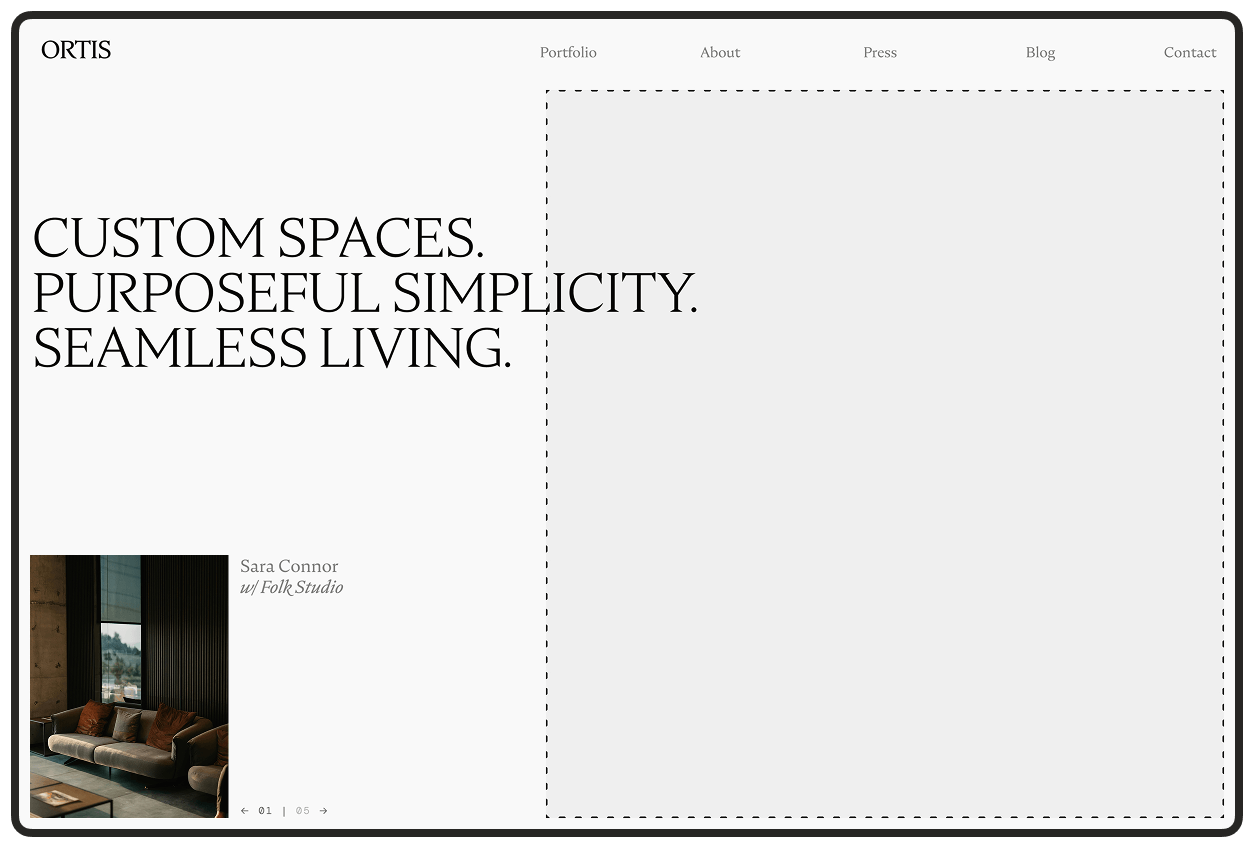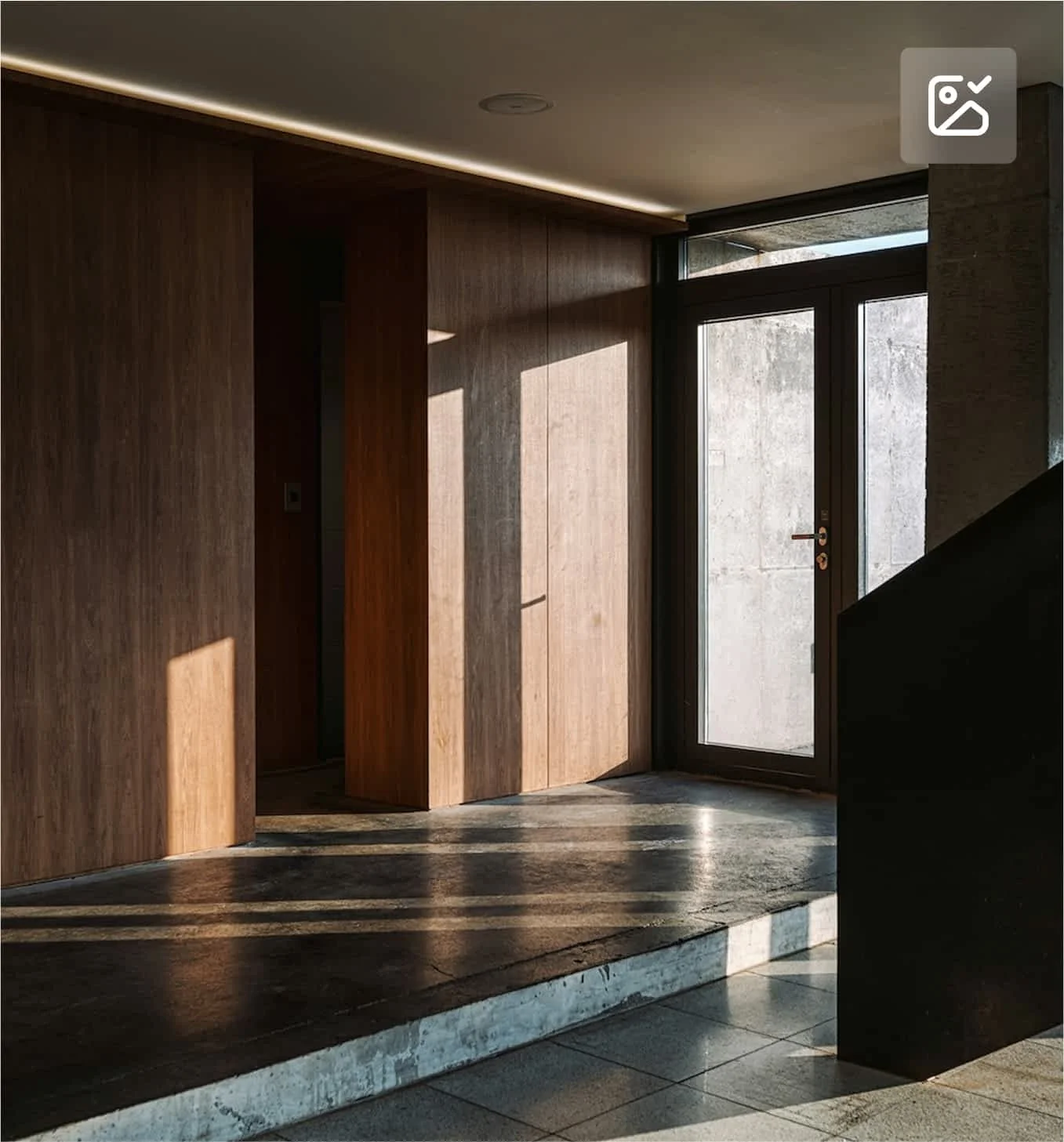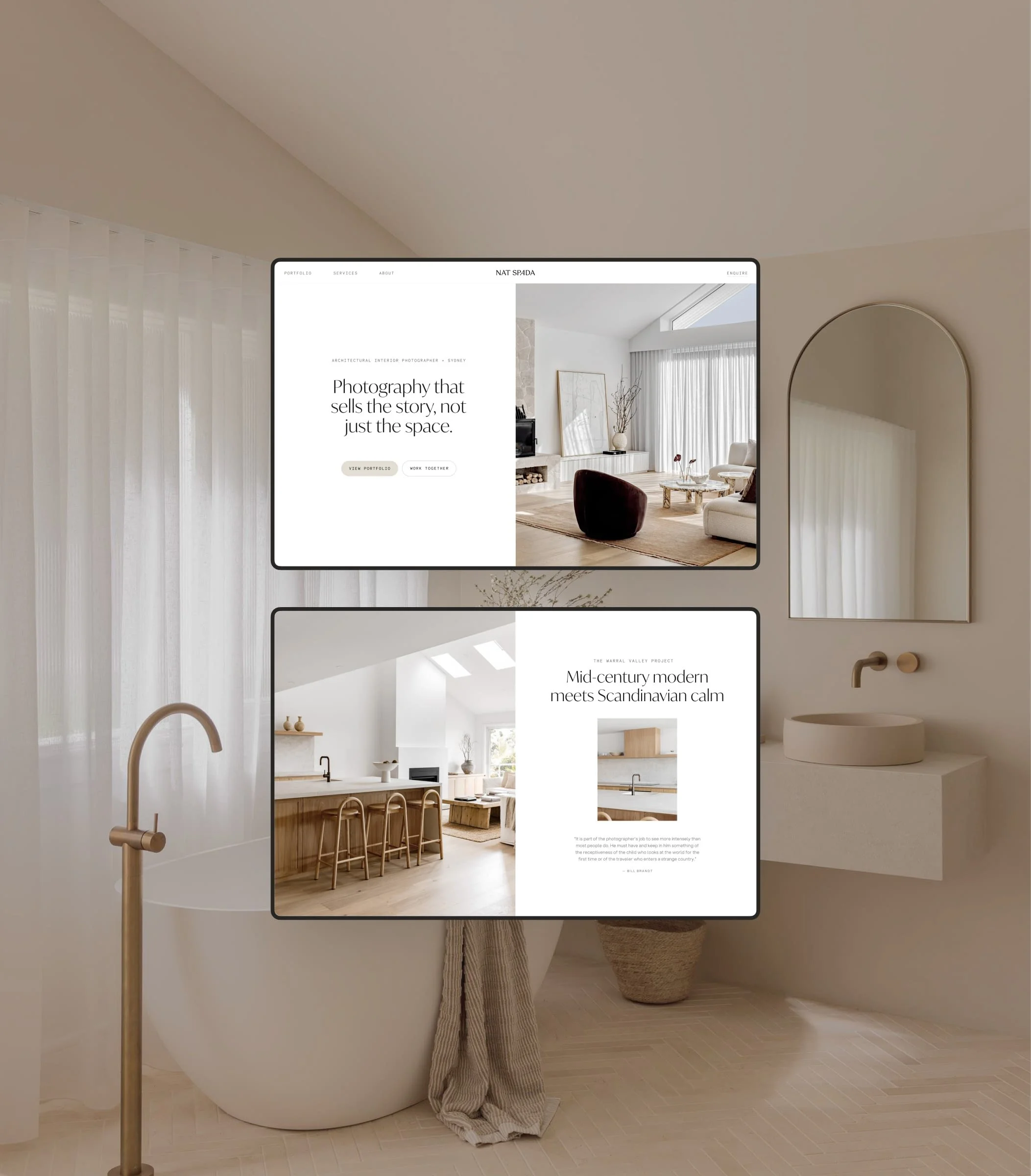Image Optimisation Guide for Squarespace
Make your Squarespace site load fast
5 simple steps to optimise your images and transform slow-loading pages into lead machines. No technical skills required.
5 Simple Steps
1
Pick your best 5-10 photos per page
Less is more. Your strongest images only.
Prioritise images that directly support your business goals
2
Resize before upload
Properly sized images prevent unnecessary data getting used and ensure crisp display across all devices.
Handy rule of thumb:
Hero/banner full-width images
2000–2500px wide
Gallery images
1500px wide
Not smaller than 1200px
(they'll look blurry)
Why fast images matter
Your website visitors decide whether to stay or leave within 3 seconds.
Research shows even a 1-second delay can drop conversions by 4—7%
Users are even more ruthless on mobile!
Fast-loading images don't just improve user experience — they boost your Google rankings, increase mobile conversions, and make your business look more pro.
3
Compress file size for performance
Smaller files = faster website. Compressed images reduce loading times significantly and dramatically improve the mobile experience. Plus, Google loves a fast site.
Target file size
(No hard and fast rules, just a handy guideline)
Keep images under 500KB each
for optimal performance
Aim for 200-300KB
for non-hero (not full-width) images
Never exceed 1MB
unless absolutely essential for that epic gif you simply must include
Compress images online:
After resizing, upload the images to a free tool like Optimole, Pixresize or Compressor.io — they’re free, maintain quality, and you can batch process.
Download when the file size hits your target (under 500KB).
Compare quality — if it looks good on your computer screen, it'll look great on Squarespace.
How Squarespace handles your images
Squarespace automatically creates seven different sizes of every image you upload and serves the right size based on your visitor's device.
Squarespace will also convert all your images to the modern WebP format for faster loading while still maintaining quality.
However, Squarespace can only work with what you give it. Upload a massive 5MB photo, and even the smallest version will be unnecessarily large. That's where proper prep like this makes all the difference.
4
Name Files for SEO
Google hates “IMG_4567.jpg”. Proper file naming helps Google understand your images, improving your chances of appearing in image search results.
Use this format:
[main-keyword]-[location]-[descriptor].jpg
Examples:
melbourne-cafe-interior-design.jpg
sydney-family-photographer-outdoor.jpg
brisbane-accountant-consultation-workshop.jpg
Naming rules for Squarespace:
Use lowercase letters only
Replace spaces with hyphens (-)
Avoid underscores, special characters, and numbers
Keep names under 60 characters
Include your location if you're a local business
5
Upload to Squarespace and add Alt Text
Alt text improves accessibility for screen readers and helps Google understand your images, boosting your SEO rankings.
How to upload optimised images in Squarespace
There are two common methods.
Option 1: Upload in bulk to Asset Library
Navigate to your Asset Library in your main sidebar menu: Website → Assets
Drag and drop your optimised images from your desktop
Add alt text in the “Image Alt Text” field
Access these images anywhere on your site in Image Blocks and gallery sections
Option 2: Upload per page
Navigate to your page in the Squarespace editor
Add an Image Block or open an existing gallery section
Upload your optimised images
Add alt text in the “Image Alt Text” field
For either method, your images will automatically be converted to WebP format.
ALT: Indoor plant in ceramic pot sitting on window sill with windows open
Writing effective alt text:
Describe what's actually in the image (not what you want to sell)
Keep it natural and conversational, like you're describing it to a friend
Include relevant keywords but avoid stuffing
Aim for 125-150 characters
Alt text examples for business images:
Instead of: “Janice”
Write: “Female entrepreneur working on laptop in modern Brisbane office space”
Instead of: “mug product”
Write: “Handmade ceramic coffee mug with natural glaze finish on wooden table”
Squarespace automatic alt text
Squarespace can now generate alt text suggestions using AI:
Open the SEO/AIO panel in your site settings
Click “Improve with AI’ in the SEO Completion Score section
Review and edit the suggested alt text for each image
Save and apply the descriptions you're happy with
Common Squarespace image mistakes to avoid
❌ Don't do this:
Upload massive RAW files directly from your camera
Use generic file names like “IMG_1234.jpg”
Skip alt text for images
Ignore mobile preview when checking image quality
✅ Do this instead:
Resize and compress before uploading
Name files descriptively with keywords
Add specific, helpful alt text to every image
Always preview on mobile devices
Bottom line
That’s it! You did it! Spending 30 minutes optimising your images will make your Squarespace site faster, more professional, and more likely to convert visitors into customers. Your mobile users (which is most likely the majority of your audience) will thank you with longer site visits and more enquiries.
We can do this for you in Launch Labs
The fast lane to a professional website.
Launch Labs is a guided 5-day sprint to launch a stunning professional website — no tech stress, no blank canvas.
Done in 5 days
Built for your industry
Co-created with industry experts
Agency guidance from the Brightfolk team
Step-by-step self-paced course
Design, SEO & copywriting guidance included
AU $5K




